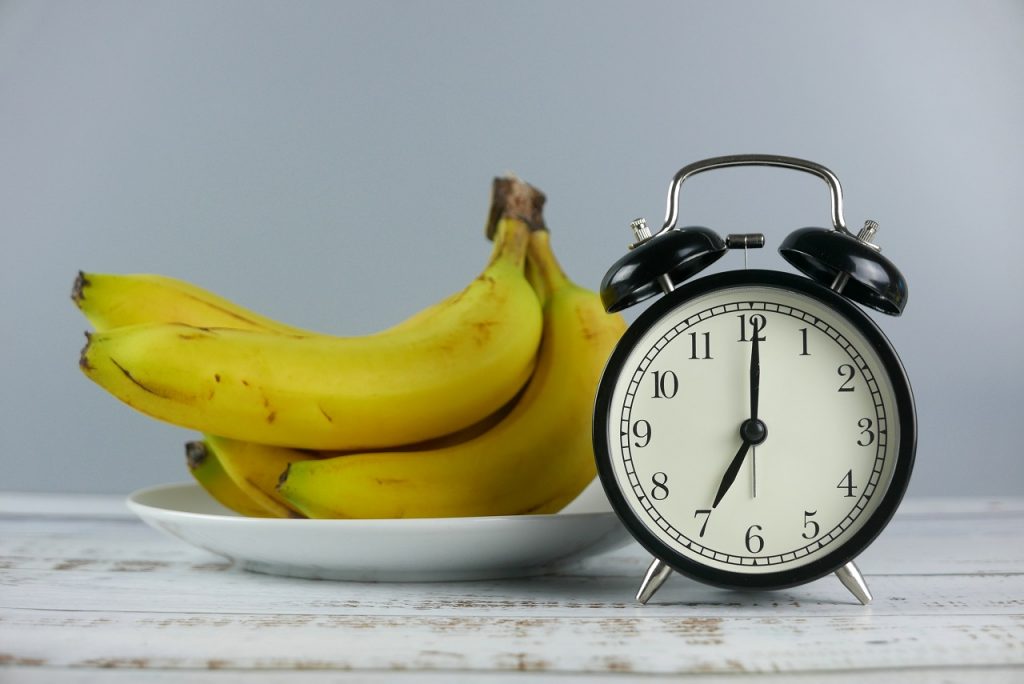
Have you heard about the Circadian Rhythm Diet or the 7am to 7pm diet and the recommended dietary habits & restrictions it involves? Surprisingly, there are no dos and don’ts on eating. It’s all about when you should eat. The basic idea of this diet is to reset meal timings to the same one as our ancestors i.e. between sunrise and sunset – basically scheduling meals during daylight hours.
Circadian Rhythm Diet also known as Body Clock Diet is basically a form of time restricted eating plan where we eat in sync with the body’s internal clock which gets regulated by change within the environment, mainly, light and darkness, and are controlled by a small area in the middle of the brain. This can affect metabolism, hunger, sleep, body temperature and other bodily functions.
The hormone cortisol, also known as the “get up and go” hormone is linked with body metabolism and hence weight. It rises and falls during the course of the day. If someone eats when metabolism is at peak, calories consumed would be utilized well and not deposited as fat. On the other hand, food eaten at the wrong time may lead to weight gain.
Circadian rhythm is a natural, internal process that regulates the sleep-wake cycle and repeats every 24 hours and can be divided into 2 phases:
- Eating and metabolizing phase: Metabolism is high when cortisol is at its peak and slow when cortisol levels are down. The body releases cortisol naturally twice per day: once in the early morning and later in the evening and at that time, the stomach too is ready with the right amount of hormones and digestive enzymes and even good gut microbes to digest the food. So for health benefits eat with the Sun. In response to daylight, cortisol rises, insulin sensitivity increases and melatonin decreases, making one feel active and energized. Cortisol supports thyroid function and metabolism, and contributes to the energy needed to complete daily tasks.
- Resting and healing phase: When the sun sets, the body naturally wants to wind up and prepare for sleep. The sleep inducing hormone melatonin rises up, while cortisol and insulin sensitivity reduces. So food consumed later at night when cortisol levels are decreasing is more likely to be stored as fat.
As soon as one finishes dinner, the body slowly gets slow on metabolism, the body clock resets, going into repair and rejuvenation mode so that damaged cells can be repaired and replaced with healthy new cells and allergy causing chemicals or pathogens cannot attack the body. Thus, late night munching leads to weight gain and it disrupts the body’s natural healing mechanism too.
Highlights Of The Circadian Rhythm Diet
- Eat during daylight.
- Have breakfast and lunch as the biggest meals of the day, and dinner, the smallest.
- Have about 75% of nutrition before 3 pm
- Do not eat anything post dinner.
Benefits Of This Diet
- Helps maximize weight loss efforts
- Reduces the risk of obesity
- Improves digestive health
- Improves metabolism
- Improves sleep, mood and energy levels
- Reduces inflammation in the body
- Lowers the risk of type-2 diabetes and cardiovascular disease
- Promotes longevity
Those who schedule their meals between 12 hours (7 am to 7 pm) might have a much better circadian rhythm and health unlike those who delay dinner and eat within 15-16 hours (7am to 11pm or more). After 12-16 hours of fasting when we have the next meal i.e. breakfast – the body gets enough time to heal/repair as required. Don’t eat anything post dinner as the body enters the healing and rejuvenation mode. Compounds that encourage the inflammatory response rise at night. This is likely because the body is better at fighting infections while it is at rest, and energy can be poured into the effort, rather than into other functions like metabolism.
Even if the food choice & calorie consumed is the same, those who eat during daylight have better health than those who delay. Food at the wrong time can disturb the internal clock and break the metabolic balance in our body, and that can push us towards disease. Biological rhythms are meant to protect us. Disturbing this rhythm can lead to weight gain, hormonal issues, mental health issues, metabolic diseases like type -2 diabetes and heart problems.
So do give this Circadian Rhythm Diet a go and let us know what you feel in the comments below! We hope this article helps you. For more informative articles such as this, check out Healthy Reads or you can get this information directly from a GOQii Coach by subscribing for personalized health coaching here.
#BeTheForce




natural, internal process that regulates the sleep-wake cycle is explained so well … another good article from a knowledgeable coach 👏 👏👏
Great content! This is exactly the sort of thing I was looking for. Thanks for your help
I wish I could have read the post sooner. It’s great. Everything I need is here. Following this diet will definitely work
Highly enlightening article. I ve decided to follow the circadian diet . Great article . Many Thanks to the author.